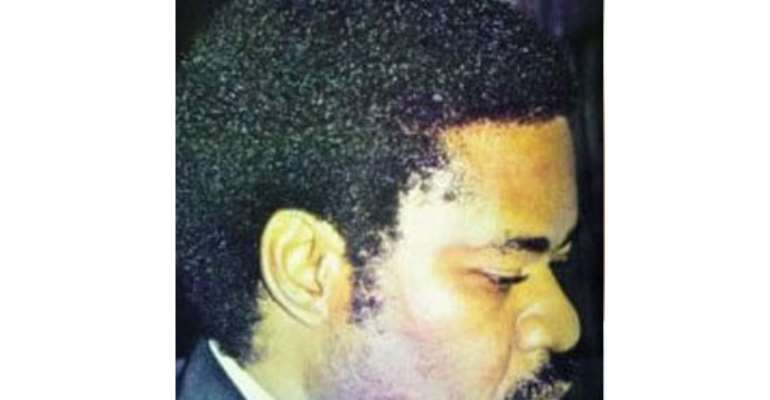30 years on, ghost of fearless journalist continues to haunt IBB

October 19, 1986 has to be one of the darkest days in Nigeria’s history; hot on the heels of the horrors of the civil war of the ‘60s and ‘70s and the Boko Haram bloodletting in the North.
It was the day Dele Giwa, a journalist, was assassinated via a parcel bomb right inside his Talabi home in Ikeja, Lagos.
It was 11: 40am.
Giwa was 39 years of age at the time of his assassination. It will be the first time in the nation’s history that anyone’s life would be cut short by a letter bomb. No one has been assassinated by a letter bomb since that time, as well.
Giwa was the pioneer Editor-In-Chief and CEO of NewswatchMagazine. Alongside Ray Ekpu, Yakubu Mohammed and Dan Agbese, Giwa made Newswatch one of the most read titles in Nigeria in the '80s.
He had returned to Nigeria after working for four years as aNews Assistant with the New York Times. He would go on to perfect his trade in the National Concord and the Daily Times.
Dare Babarinsa, who worked as a reporter under Giwa, relieves that gloomy day in the history of the media in Nigeria.
“Newswatch was a great place to practise journalism. We had four of the greatest journalists under one roof and commanding the troops into battle. Then one day, our lives changed. October 19, 1986 was a Sunday. After service, I had gone to the office, as was the practice among us staff of Newswatch to pick up my copy of the Magazine. I was accompanied there by my friend and neighbor, Paul Okomayin, a banker and accountant. We got to the office at 62 Oregun Road, and met an eerie scene.
“Giwa had been bombed!
“A lady from Newbreed, another magazine founded by Chris Okolie, was telling me. She sensed my incomprehension. Giwa had been bombed! He is dead!”
Accounts of how Giwa died and conspiracy theories that culminated in his passing may differ from person to person, but the name of a certain General (retd) Ibrahim Badamosi Babangida (IBB) who was Nigeria’s ruler at the time of the letter bomb assassination, has been a recurring decimal.
Lt. Col. A.K Togun, the Deputy Director of the State Security Service (SSS) was on Giwa’s case, as was Col Halilu Akilu of the Directorate of Military Intelligence (DMI).
Togun and Akilu had accused Giwa of various offences from gun-running, plotting an insurrection against the government of the day and blackmail.
Akilu had called Giwa’s home and had asked for driving instructions to Giwa’s home a day before the parcel bomb tore through the journalist, leaving him mortally incinerated.
Giwa had been invited to the offices of the SSS and DMI before his death. He was a living threat to the military junta headed by IBB. His pen was mightier than the sword, to borrow a timeless quote.
There’s also been the Gloria Okon angle to Giwa’s death.
On 22 April, 1985, a certain Gloria Okon was caught with heroin and hard drugs at the Aminu Kano International Airport. She was headed for London. According to some accounts, Ms. Okon didn’t even exist. Her real name was Chinyere.
The said Okon would 'die' in custody six days after she was caught; and a 'corpse' of hers paraded.
As the conspiracy goes, the 'corpse' of the Gloria Okon unveiled to the world had been exhumed from a mortuary. The corpse belonged to someone else.
Chinyere, according to the conspiracy theorists, was a drug mule for Maryam Babangida, late wife of IBB.
Giwa had spotted Chinyere in the UK and had assigned a journalist to take pictures of the lady. He was studying the pictures when a parcel arrived his home, bearing the seal of the“Commander-in-Chief”.
According to the New Telegraph, Giwa asked his seven-year-old son when he got hold of the letter: “Who brought this?”
“On the parcel was written “From the Office of the C-in-C” (commander-in-chief). Also written on it was that nobody except the addressee should open it. Billy told his father that he received it from Musa Zibo, the security guard. Billy left the room and Giwa suspended his meal and said to Soyinka: “This must be from the president.” He put the parcel on his laps and tried to open it with his right hand and that was it”.
Kayode Soyinka, who was with Giwa when the parcel arrived, had excused himself to use the restroom. It turned out his saving grace.
Babangida has been mum for 30 years. In 2001, he shunned an invitation from the National Human Rights Commission to testify about what he knew concerning Giwa’s death.
It got worse: Babangida, Hakilu and Togun proceeded to the courts, obtaining a restraining order barring the Human Rights Commission from ever summoning them.
30 years on however, the ghost of Dele Giwa continues to stalk the land.
There have been several unsolved murders involving high profile persons in that span, but Giwa’s has been the only one carried out with a letter bomb. Giwa’s has been the only one perpetrated with such cold-blooded, brutal technique only the Military could have pulled off at the time.
All investigations into the death of Giwa have been frustrated, several administrations after. Most of the actors in the murder case are still alive. IBB still rules the roost in Minna, Niger Stateand is still regarded in certain circles as a political Godfather.
IBB continues to pontificate on matters of national concern.
Late legal luminary, Gani Fawehinmi, fought unsuccessfully to unravel the one million dollar question: Who killed Dele Giwa?
IBB may not be the only Nigerian leader who’s got blood stained hands hiding under his Babariga (traditional Nigerian attire), but the death of the journalist may well haunt him until his dying day.
Continue to rest in peace, Sumonu Oladele "Baines" Giwa .
